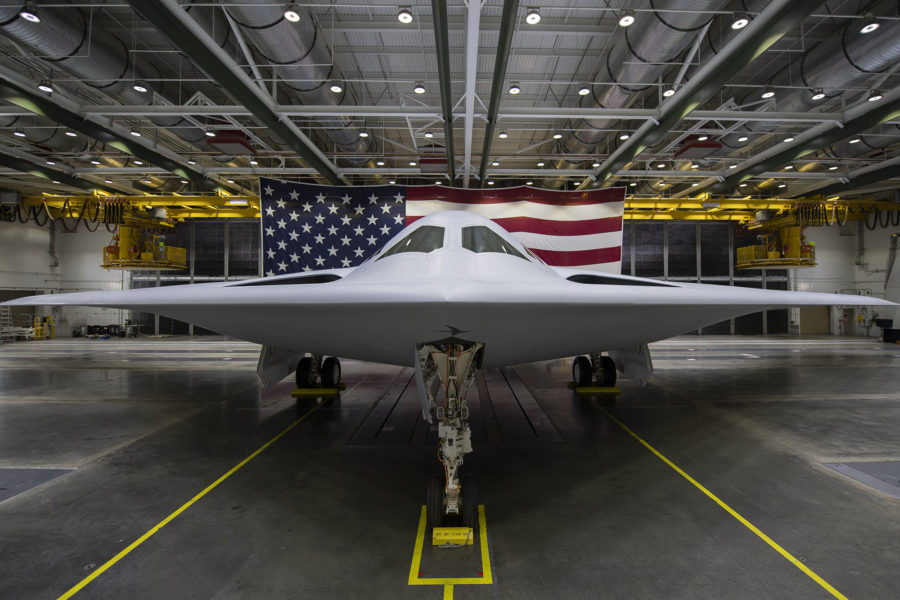The Air Force says it doesn’t know of any problems with the work Spirit AeroSystems has done on the B-21 bomber but won’t say if it has launched any investigations of its own into the subcontractor’s processes.
“I haven’t heard anything about a problem with the B-21” due to Spirit’s subcontractor work, Air Force Secretary Frank Kendall told Air & Space Forces Magazine at the AFA Warfare Symposium in Aurora, Colo., this week.
Spirit is under scrutiny after a Jan. 5 accident involving a door plug the company installed on an Alaska Airlines Boeing 737 fuselage blew out mid-flight, which led to a grounding of the 737-MAX 9 fleet until individual aircraft could be inspected for similar flaws. Spirit was already fighting a shareholder class-action lawsuit, lodged in December, alleging an “excessive” amount of work defects at the company, based on whistleblower reports.
Spirit is one of only a handful of B-21 subcontractors the Air Force has permitted Northrop Grumman, the B-21 prime, to name. The others are RTX’s Pratt & Whitney, Janicki Industries, Collins Aerospace, GKN Aerospace, and BAE Systems. The specific work Spirit does on the B-21 has not been identified, as a matter of general secrecy about the program.
The National Transportation Safety Board is investigating production processes at Spirit and Boeing in the wake of the Jan. 5 accident.
“Spirit AeroSystems has been working closely with our customer since the event with Alaska Airlines Flight 1282 on Jan. 5,” according to a company statement. “A Spirit team is now supporting the NTSB’s investigation directly. As a company, we remain focused on the quality of each aircraft structure that leaves our facilities.”
An Air Force spokesperson said the service continues to “monitor safety issues.”
The Air Force “relies on the Defense Contract Management Agency to ensure all aircraft meet the DOD’s stringent quality standards before it accepts aircraft from any industry partner,” the spokesperson said.
“DCMA supports the B-21 program through their on-site quality specialists at Spirit facilities, as at many other B-21 suppliers,” the spokesperson added. “The DCMA’s specialists have direct access to Spirit quality management systems and data, as mandated via the B-21 contract and in accordance with the Defense Federal Acquisition Regulation. Suppliers must also submit to regular DCMA inspections throughout the manufacturing process and before acceptance of products, ensuring quality escapes and process issues are caught early.”
The spokesperson did not offer a response when asked if any Air Force-specific scrutiny of Spirit is underway as a result of the recent quality escapes.
Spirit is also a subcontractor to Boeing on the Air Force’s KC-46 tanker, for which it provides the forward fuselage, strut and nacelle components, and the fixed leading edge of the wings. On its website, Spirit says it “assisted in the design of the next-generation tanker,” which is replacing the KC-135.
The shareholder lawsuit against Spirit alleges that a veteran quality manager at the company was asked to hide quality problems, and that the company retaliated against him when he refused.
The suit charges Spirit with having a corporate culture that emphasizes “pushing out product over quality.”
The first B-21 made its inaugural flight in November 2023, and the Air Force has acknowledged that it has made at least one test flight since then. Northrop received a low-rate initial production contract for the B-21 shortly after first flight, Pentagon acquisition chief William LaPlante announced in late January.
